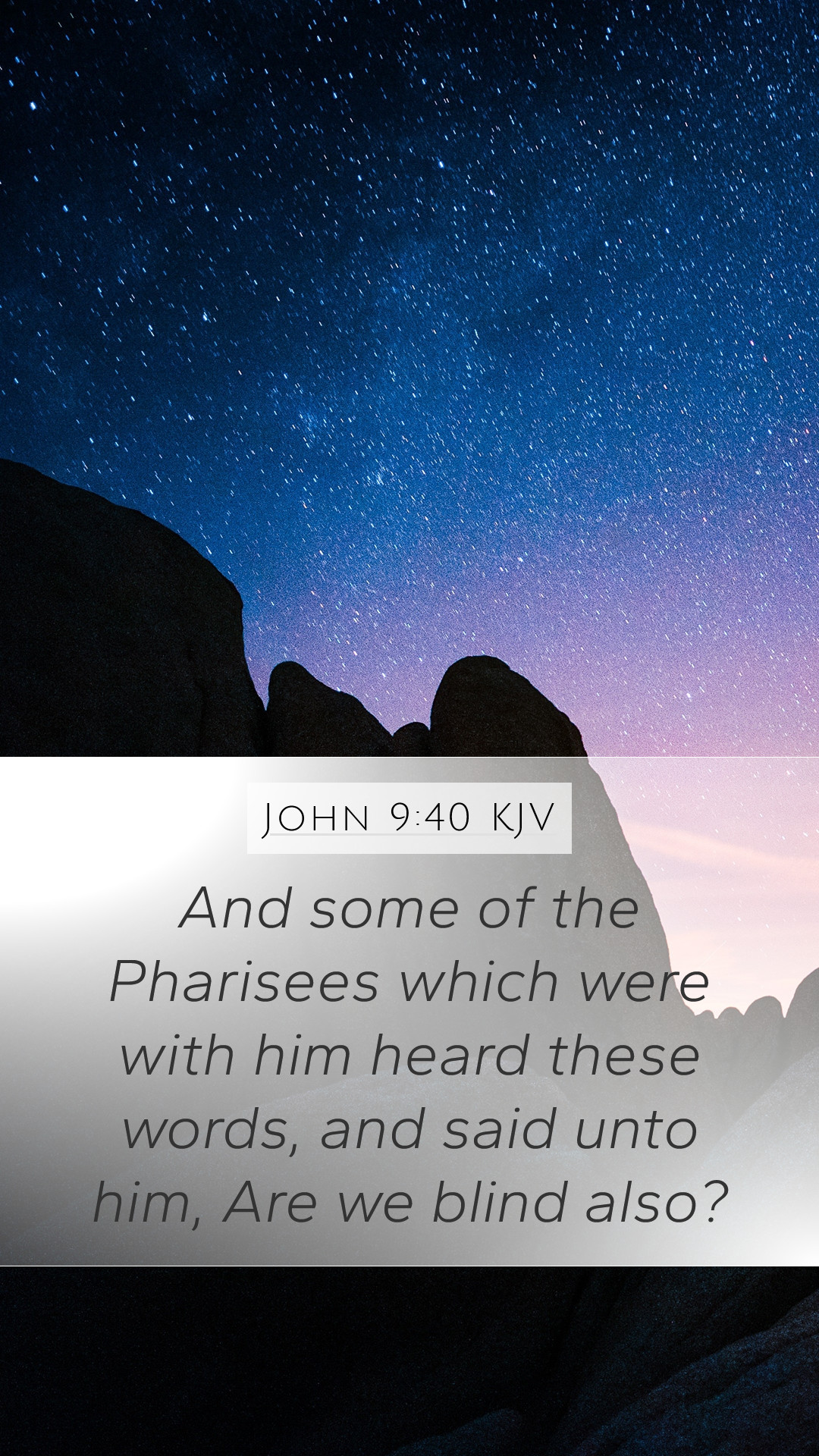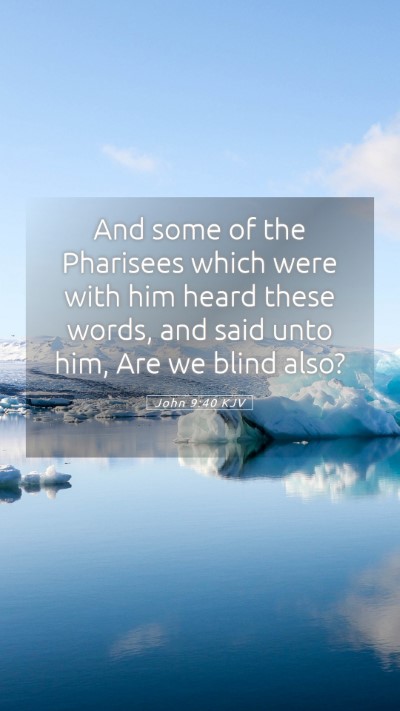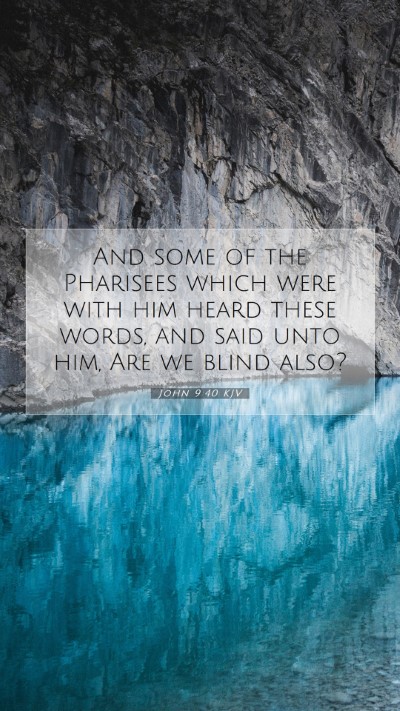Old Testament
Genesis Exodus Leviticus Numbers Deuteronomy Joshua Judges Ruth 1 Samuel 2 Samuel 1 Kings 2 Kings 1 Chronicles 2 Chronicles Ezra Nehemiah Esther Job Psalms Proverbs Ecclesiastes Song of Solomon Isaiah Jeremiah Lamentations Ezekiel Daniel Hosea Joel Amos Obadiah Jonah Micah Nahum Habakkuk Zephaniah Haggai Zechariah MalachiVerse
John 9:1 John 9:2 John 9:3 John 9:4 John 9:5 John 9:6 John 9:7 John 9:8 John 9:9 John 9:10 John 9:11 John 9:12 John 9:13 John 9:14 John 9:15 John 9:16 John 9:17 John 9:18 John 9:19 John 9:20 John 9:21 John 9:22 John 9:23 John 9:24 John 9:25 John 9:26 John 9:27 John 9:28 John 9:29 John 9:30 John 9:31 John 9:32 John 9:33 John 9:34 John 9:35 John 9:36 John 9:37 John 9:38 John 9:39 John 9:40 John 9:41

